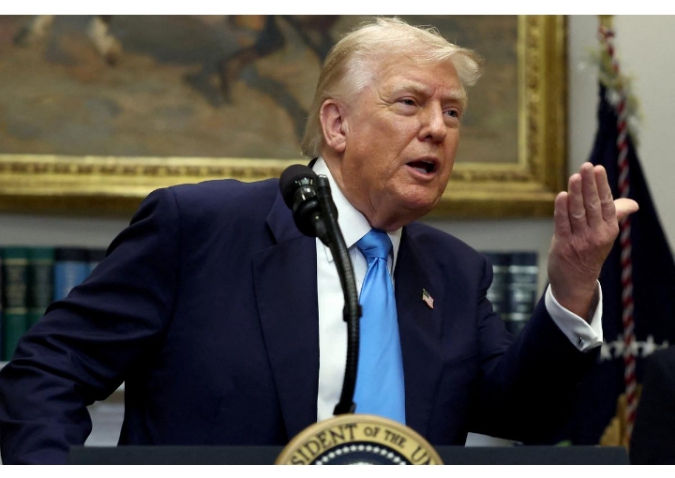US President Donald Trump announced a fresh agreement with Pakistan on Thursday with Washington pledging to support the development of “massive oil reserves”. Trump also said that Pakistan could sell oil to India in the future in a post on Truth Social, his social media platform.
“We have just concluded a Deal with the Country of Pakistan, whereby Pakistan and the United States will work together on developing their massive Oil Reserves. We are in the process of choosing the Oil Company that will lead this Partnership. Who knows, maybe they’ll be selling Oil to India some day!” Trump posted on Wednesday.
According to the US Central Intelligence Agency’s estimates, Pakistan has proven oil reserves of over 332 million barrels. This gives Islamabad the 52nd largest oil reserves in the world, behind Turkey and ahead of Trinidad and Tobago. India, with proven oil reserves of 4.5 billion barrels of oil, ranks 23rd on that same list.
So far, the United States has remained a fairly marginal player in Pakistan’s economy. According to the State Bank of Pakistan, FDI flows into Pakistan from America came up to just $29 million in the first quarter of FY2025. China, by contrast, accounted for most of the FDI flows into Pakistan with investments valued at $404 million in the same quarter.
Trump’s announcement came on the same day that Pakistan and the United States concluded a trade deal.
Pakistan’s finance minister Muhammad Aurangzeb met with US Trade Representative Jamieson Greer and US Commerce Secretary Howard Lutnick in Washington on Wednesday.
Pakistan faced a 29% tariff on exports to the United States starting on August 1 in the absence of a trade deal. However, Pakistan’s new tariff rate arrived at due to the agreement is as yet unknown.
On Wednesday, Trump announced that India will face a 25% tariff on all exports to America plus an unspecified additional penalty for purchasing Russian energy, dealing a setback to negotiations just days before an August 1 deadline for additional levies that New Delhi has been attempting to stave off.

